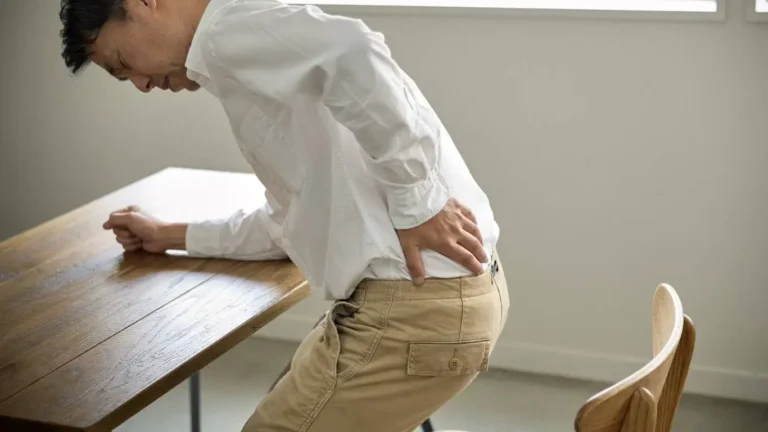Can GERD Lead to Esophagus Damage? Shocking Risks You Must Know
Ever wondered if GERD could actually damage your esophagus? It’s a question I get asked a lot as a digestive health specialist. And let me tell you, the answer isn’t just a simple yes or no—it’s a bit more complicated than that. If you’ve ever dealt with the burning pain of acid reflux, you know it’s no joke. But here’s the real kicker: when GERD (Gastroesophageal Reflux Disease) goes untreated, it can cause some serious issues for your esophagus. And trust me, I’ve seen firsthand how life-altering that can be for patients. So, let’s dive in and break it all down, shall we?
What Exactly Is GERD and Why Does It Matter?
Before we talk about the damage GERD can do to your esophagus, let’s quickly cover what GERD actually is. In simple terms, it’s when stomach acid frequently flows back up into your esophagus, irritating the lining. This happens because the lower esophageal sphincter (LES)—a muscle that acts like a one-way valve—becomes weak or relaxes when it shouldn’t.
For most people, occasional acid reflux is annoying but not a big deal. However, if it’s happening more than twice a week, you might be dealing with GERD. And trust me, ignoring it is not the way to go.
Can GERD Lead to Esophagus Damage?

Now, let’s get to the heart of the matter. Can GERD actually cause damage to your esophagus? Absolutely. And unfortunately, it’s more common than people think. Chronic acid exposure can wear down the delicate lining of your esophagus, leading to some pretty serious complications over time.
The Different Stages of Esophageal Damage
GERD-related esophageal damage isn’t an overnight thing—it happens in stages. Here’s a quick breakdown of what can happen if acid reflux is left unchecked:
- Mild Irritation: In the beginning, acid reflux just causes some inflammation in the esophagus, leading to that burning sensation (hello, heartburn!).
- Esophagitis: If acid keeps washing up, the esophageal lining can become inflamed and irritated, potentially leading to ulcers.
- Strictures: Over time, repeated damage can cause scar tissue buildup, which narrows the esophagus and makes swallowing difficult.
- Barrett’s Esophagus: This is where things get a little scary. Long-term acid exposure can change the cells in your esophagus, increasing the risk of esophageal cancer.
Each of these conditions can make eating and drinking uncomfortable—or even painful. I’ve had patients who could barely swallow a bite of food because of strictures caused by long-term GERD. It’s not something you want to let slide.
What Does Esophageal Damage from GERD Feel Like?

So, how do you know if GERD has started damaging your esophagus? Well, aside from the usual heartburn, there are a few red flags you should watch out for:
- Swallowing Problems: If food feels like it’s getting stuck in your throat, that could be a sign of strictures.
- Chronic Cough or Sore Throat: Acid reflux can irritate your throat, leading to a persistent cough or hoarseness.
- Chest Pain: GERD-related chest pain can sometimes mimic a heart attack, which is why it should never be ignored.
- Regurgitation: Feeling like food or acid is coming back up into your mouth? That’s another classic GERD symptom.
If you’re experiencing any of these, it might be time to see a doctor. Catching GERD early can prevent serious damage to your esophagus and save you a lot of trouble down the road.
How GERD Causes Long-Term Esophagus Damage

It’s easy to brush off acid reflux as just another annoying part of life, but let me tell you—if GERD sticks around too long, it can turn into something much more serious. I’ve seen people who ignored their symptoms for years, thinking it was “just heartburn,” only to find out later that their esophagus had suffered significant damage. And once that damage is done, reversing it isn’t always easy.
Acid Burns and Chronic Inflammation
Imagine pouring acid on your skin over and over again—eventually, it’s going to burn. That’s basically what’s happening inside your esophagus when you have GERD. Stomach acid is highly corrosive, and the esophagus isn’t built to handle constant exposure. Over time, the tissue becomes inflamed, irritated, and even ulcerated.
Chronic inflammation can also trigger the body’s healing response, but in a way that’s not always helpful. Instead of regenerating normal, healthy tissue, the esophagus might develop scar tissue that thickens and narrows the passageway, leading to a condition known as esophageal stricture. And trust me, this makes swallowing anything—even water—a real struggle.
The Risk of Barrett’s Esophagus
Now, here’s where things get a little more concerning. If GERD keeps damaging the esophageal lining, the cells in the lower esophagus might start changing in an effort to protect themselves from the acid. This condition is called Barrett’s esophagus, and while it doesn’t always lead to cancer, it does significantly increase the risk.
Barrett’s esophagus is one of those conditions that doesn’t really cause noticeable symptoms on its own. That’s why it often goes undetected until a doctor performs an endoscopy. The tricky part? Once these cellular changes begin, they don’t just go away on their own. That’s why getting GERD under control early is so important.
Ways to Prevent GERD-Related Esophagus Damage

So, what can you do to protect your esophagus from GERD-related damage? The good news is, you don’t have to just sit back and let acid reflux wreak havoc on your body. There are plenty of ways to manage GERD, and trust me, even small changes can make a big difference.
Dietary Changes That Help
Let’s start with food—because what you eat plays a huge role in acid reflux. Over the years, I’ve seen patients go from daily heartburn to almost zero symptoms just by making a few tweaks to their diet. If GERD is causing problems for you, consider the following:
- Avoid trigger foods: Spicy foods, citrus fruits, tomatoes, caffeine, chocolate, and fried foods are common culprits.
- Eat smaller meals: Large meals put extra pressure on the LES, making reflux more likely.
- Don’t eat too close to bedtime: Give your stomach at least 2-3 hours to digest before lying down.
- Stay hydrated: Water helps wash down acid and keep the esophagus clear.
Smart Lifestyle Habits
Diet isn’t the only thing that matters. Your daily habits also play a huge role in managing GERD. Here are some lifestyle changes that can help protect your esophagus:
- Lose excess weight: Extra belly fat puts pressure on your stomach, pushing acid upward.
- Elevate your head while sleeping: Gravity helps keep acid where it belongs—down in your stomach.
- Quit smoking: Smoking weakens the LES and reduces saliva production, making reflux worse.
- Manage stress: Stress doesn’t directly cause GERD, but it can make symptoms worse by increasing stomach acid production.
When to Seek Medical Help for GERD
If you’ve been dealing with heartburn for a while, you might be wondering: When is it time to see a doctor? Well, here’s a general rule of thumb—if GERD symptoms are affecting your daily life, it’s time to get checked out.
Signs That Shouldn’t Be Ignored
Not all GERD cases require medication or medical intervention, but some do. If you experience any of the following, don’t brush it off:
- Frequent heartburn (more than twice a week): Occasional acid reflux is normal, but persistent heartburn could mean GERD.
- Difficulty swallowing: If food feels like it’s getting stuck, it could indicate esophageal damage.
- Unexplained weight loss: Losing weight without trying can be a red flag for something more serious.
- Chest pain: If GERD-related pain feels severe, always rule out heart issues first.
- Vomiting blood or black stools: These could be signs of bleeding in the digestive tract—seek immediate medical help.
GERD is common, but that doesn’t mean it should be ignored. If you’re unsure whether your symptoms require medical attention, talk to a doctor. The sooner GERD is managed, the less likely you are to develop long-term complications.
Case Studies & Real-Life Examples

Let’s talk about some real people who’ve dealt with GERD-related esophageal damage. These stories aren’t just medical cases—they’re experiences I’ve seen firsthand in my practice. If you’re dealing with GERD, you might even see a bit of yourself in them.
Case Study #1: The Busy Professional Who Ignored GERD
James, a 42-year-old executive, came to me after suffering from chronic heartburn for years. He was always on the go, grabbing fast food between meetings and drinking multiple cups of coffee a day. For him, acid reflux was just “part of life.”
By the time he finally saw me, he had developed esophageal strictures. His food would often get stuck mid-swallow, and he had to drink water just to force it down. After an endoscopy, we found severe inflammation and scarring in his esophagus.
With a combination of lifestyle changes, medication, and a procedure to widen his esophagus, James was able to get back to normal eating. But he admitted—he wished he had addressed his GERD years earlier.
Case Study #2: The Health-Conscious Patient Who Still Developed Barrett’s Esophagus
Susan, a 50-year-old yoga instructor, was shocked when she was diagnosed with Barrett’s esophagus. She ate a healthy diet, avoided processed foods, and rarely drank alcohol. But what she didn’t realize was that her nightly habit of sipping herbal tea before bed was triggering her reflux.
Because she didn’t experience traditional heartburn (just a chronic cough), she never suspected GERD was damaging her esophagus. When she finally saw a gastroenterologist, an endoscopy confirmed that her esophageal cells had started changing.
Luckily, we caught it early, and with acid-suppressing medication and a few lifestyle tweaks, she was able to stop further damage. This just goes to show—even the healthiest individuals can be affected by GERD.
Key Takeaways: What You Need to Remember
At this point, we’ve covered a lot about GERD and esophageal damage. Let’s sum up the key points:
- GERD isn’t just heartburn— it can lead to serious esophageal complications over time.
- Ignoring symptoms can cause permanent damage— including strictures, ulcers, and Barrett’s esophagus.
- Early intervention matters— the sooner GERD is managed, the lower the risk of complications.
- Diet and lifestyle changes are powerful— avoiding trigger foods, maintaining a healthy weight, and adjusting meal timing can help.
- If you’re experiencing difficulty swallowing, unexplained weight loss, or chest pain— seek medical attention immediately.
FAQs
Still have questions? Let’s go over some of the most common ones I hear from patients.
1. Can GERD really lead to cancer?
Yes, but it’s not an overnight process. Long-term GERD can cause Barrett’s esophagus, which slightly increases the risk of esophageal cancer. However, with regular monitoring and treatment, the chances of progression are low.
2. Is surgery ever necessary for GERD?
In severe cases, yes. If medications and lifestyle changes aren’t enough, procedures like fundoplication (tightening the LES) or LINX surgery (placing a magnetic ring around the LES) might be recommended.
3. Can GERD go away on its own?
Not usually. While symptoms might come and go, GERD is often a chronic condition. Without proper management, it tends to worsen over time.
4. What’s the best diet for GERD?
There’s no one-size-fits-all answer, but a GERD-friendly diet typically includes lean proteins, non-acidic fruits, non-spicy vegetables, and whole grains. Avoiding caffeine, alcohol, and high-fat foods can also help.
5. How do I know if my esophagus is damaged?
Persistent heartburn, difficulty swallowing, regurgitation, chronic cough, and unexplained weight loss can all be signs of esophageal damage. If you’re experiencing any of these, it’s best to see a doctor.
Bonus: Additional Resources & DIY Tips
Managing GERD takes more than just medication. Here are some additional resources and at-home tips to help:
Natural Remedies That Might Help
- Slippery elm tea: Some people find that this herbal remedy soothes the esophagus.
- Aloe vera juice: Can help reduce inflammation, but be sure to choose one that’s safe for internal use.
- Chewing gum: Increases saliva production, which helps neutralize acid.
- Apple cider vinegar (with caution): Some claim a small amount before meals helps digestion, but it can worsen symptoms for others.
Helpful Links & Further Reading
- Mayo Clinic: GERD Overview
- National Library of Medicine: GERD Research
- WebMD: GERD Symptoms and Treatments
Appendix: References, Disclaimer & Call to Action
References: The information in this article is based on medical research, clinical experience, and trusted sources like the Mayo Clinic and the National Institutes of Health.
Disclaimer: This article is for informational purposes only and should not replace professional medical advice. If you have concerns about GERD or esophageal damage, please consult a healthcare provider.
What’s Next?
If you’ve been struggling with GERD, don’t wait until it causes serious damage. Take action today—whether that means tweaking your diet, making lifestyle changes, or scheduling a visit with your doctor. Your esophagus will thank you!

Camellia Wulansari is a dedicated Medical Assistant at a local clinic and a passionate health writer at Healthusias.com. With years of hands-on experience in patient care and a deep interest in preventive medicine, she bridges the gap between clinical knowledge and accessible health information. Camellia specializes in writing about digestive health, chronic conditions like GERD and hypertension, respiratory issues, and autoimmune diseases, aiming to empower readers with practical, easy-to-understand insights. When she’s not assisting patients or writing, you’ll find her enjoying quiet mornings with coffee and a medical journal in hand—or jamming to her favorite metal band, Lamb of God.







